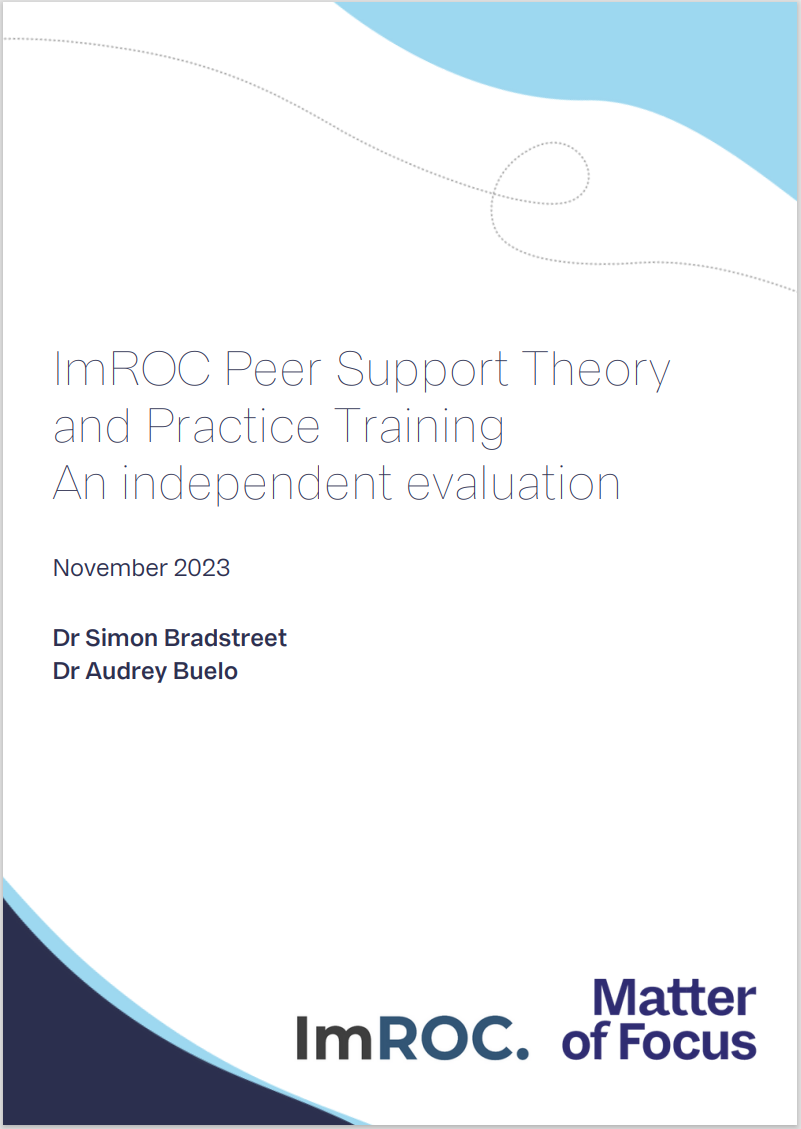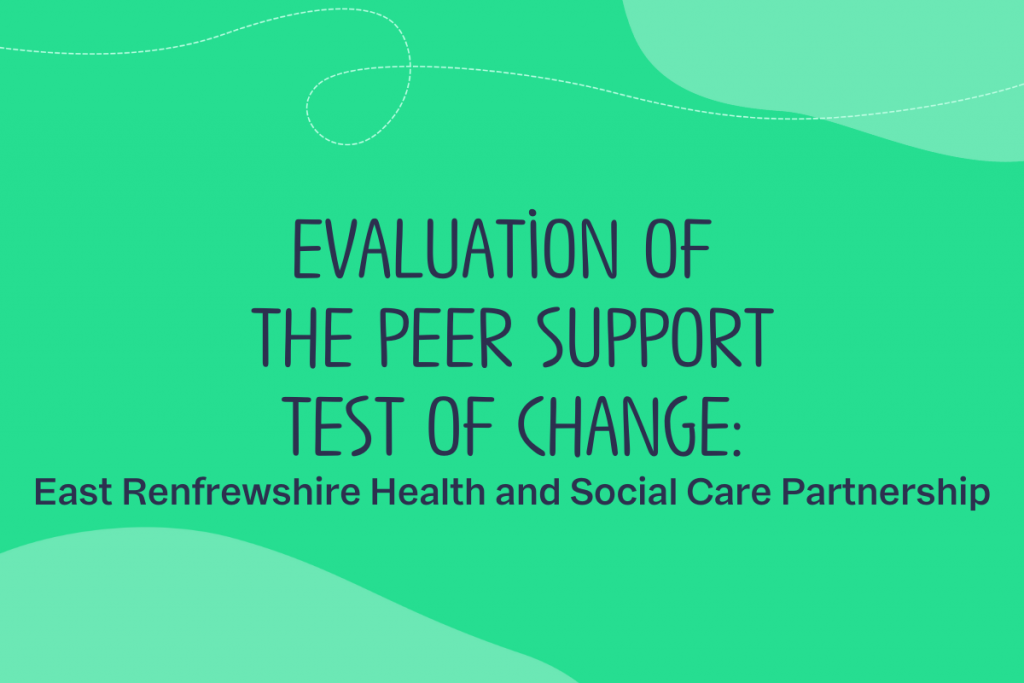Quick links
Download the evaluation report
Watch the Evaluation Stories webinar
About ImROC
ImROC is an mental health support and development organisation, based in England. It is an independent consultancy and training organisation recognised globally for its recovery-focused approach and expertise in the translation of its values into practice.
A significant part of the work of ImROC is the design and delivery of training for peer support workers employed in voluntary and statutory services, primary care and secondary care, for long term conditions including mental health problems.
Our evaluation of ImROC’s online peer support training programme
In 2022, ImROC commissioned Matter of Focus to carry out an independent evaluation of their online Peer Support Theory and Practice training. The course provides a foundational training for people interested in offering mental health peer support in the statutory and voluntary sectors.
Our evaluation approach helps organisations working with complex, people-based change.
We take an outcome mapping approach that aims to uncover not only if, but also how interventions or initiatives make a difference. For this evaluation we were seeking to understand if and how the training contributed towards trainees going on to thrive in their roles as peer supporters.
Following the participatory outcome mapping process, supported by a scoping review of wider peer support training, we evaluated our proposed theory of how change happened through the training. We did this by collecting and analysing a variety of research data including individual interviews, focus groups and surveys with trainees and trainers over eight months.
Our evaluation found overwhelming evidence that the training is effective and can make a difference in the way outlined in the theory of change for the majority of trainees.
Explore the findings of this evaluation
You can download the report below to learn more about the course, how ImROC navigated the challenging context in which peer supporters work, and how well the evidence we found supports the theory of change we helped them set out using our software OutNav.

Watch our Evaluation Stories webinar with ImROC
In this webinar, recorded live in March 2024, we share and reflect on the key findings of the evaluation and the impact it has had across ImROC and beyond.
Our approach to the evaluation is introduced by Dr Simon Bradstreet (Principal Evaluation Consultant, Matter of Focus) and key findings and recommendations are presented by Dr Audrey Buelo (Evaluation Consultant, Matter of Focus).
A question and answer session follows the presentation, in conversation with Poppy Repper and Danny Bowyer (ImROC Peer Training Team Co-Leads).
- As we discuss key findings from the evaluation, we hear about the complexity of delivering training that asks people to share and respond to personal experiences in a way that is both safe and informative.
- Additionally, we reflect on the challenges of ensuring values-based training is accessible online.
- We also consider how theory-based approaches to evaluation can enhance our understanding of peer support and lived-experience based approaches.
Related content

In East Renfrewshire Health and Social Care Partnership’s pilot Peer Support Service, people with their own lived experience of mental health or addiction recovery worked closely with people using services as their peers.
Read more about this work and our independent evaluation of the pilot.
